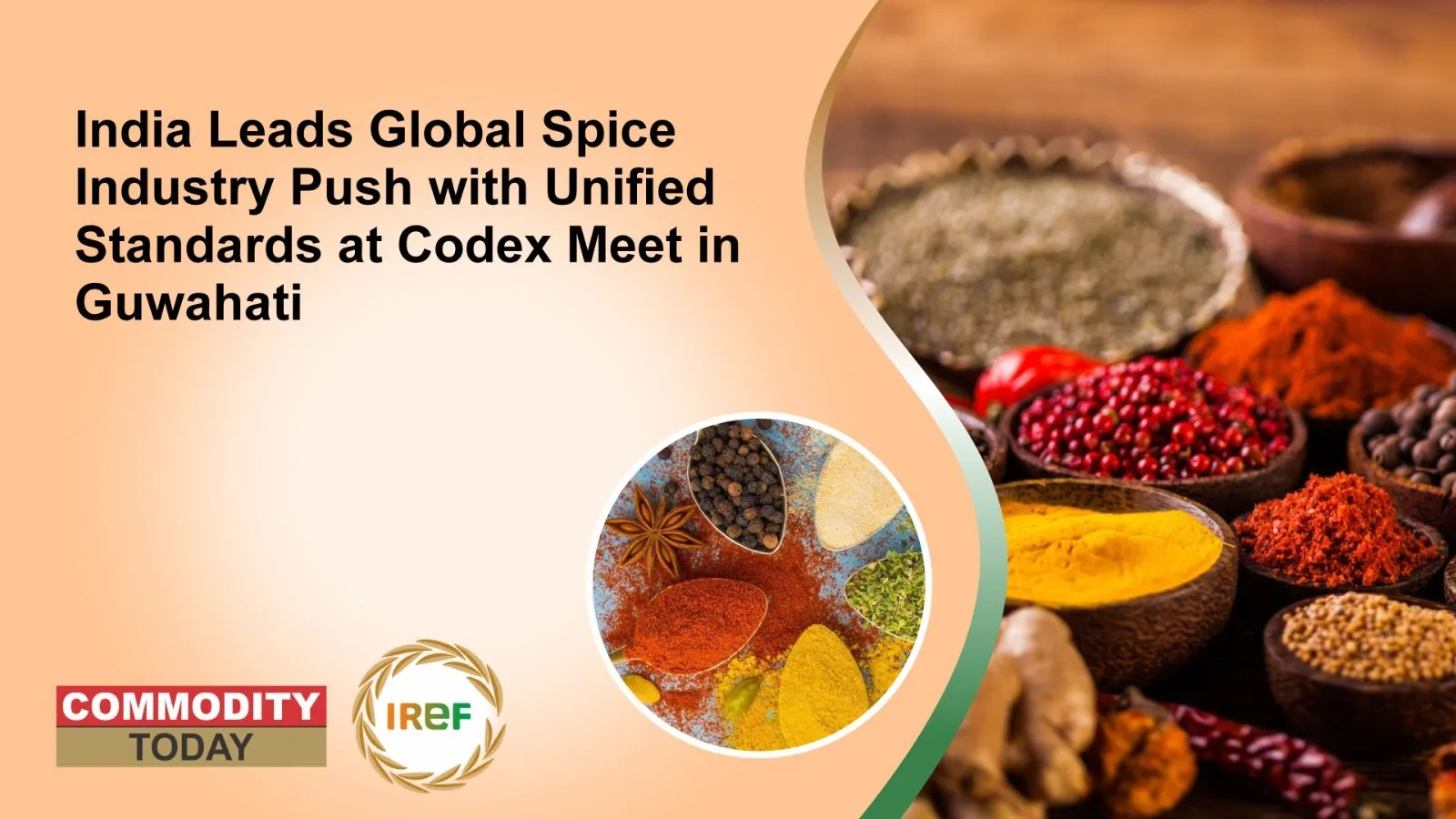India Leads Global Spice Industry Push with Unified Standards at Codex Meet in Guwahati

India has once again established its leadership in the global spice market. With the start of the eighth session of the Codex Committee on Spices and Culinary Herbs (CCSCH) in Guwahati, the country demonstrated its strong position in the global spice industry. The event, organized by the Spices Board of India, aims to establish unified international quality standards for spices and herbs.
The global spice industry is valued at $28.5 billion in 2024
Rajit Punhani, CEO of the Food Safety and Standards Authority of India (FSSAI), stated that the global spice industry is valued at $28.5 billion in 2024. Moreover, it is projected to reach $41.9 billion by 2033. Further, he added that scientific and uniform global standards for food safety are needed to increase consumer confidence and promote fair trade.
P. Hemalatha, Spice Board Secretary, highlighted that Codex standards play a significant role in maintaining justice, transparency, and safety in global food trade. She said: "Unified quality standards not only ensure safety and fairness of trade, but also strengthen consumer confidence and market access." In addition, she added that rapid advances in food science and technology have made the need for unified scientific standards in the global spice trade greater than ever.
About the Codex Committee on Spices and Culinary Herbs (CCSCH)
The Codex Committee on Spices and Culinary Herbs (CCSCH), established in 2013 at India's initiative, operates under the aegis of the Codex Alimentarius Commission of the United Nations (FAO) and the World Health Organization (WHO). The secretariat of this committee is managed by the Spice Board in India. International standards have been set for 16 spices, including black pepper, turmeric, cumin, nutmeg, cardamom, and saffron so far. The session is currently underway in Guwahati. It is discussing new standards for large cardamom, cinnamon, dried coriander, and sweet marjoram.
A major step towards global cooperation
The program agreed that multilateral cooperation is essential in improving the quality, processing, and value addition of spices. This will benefit producers, traders, and consumers alike, not only in India but around the world.